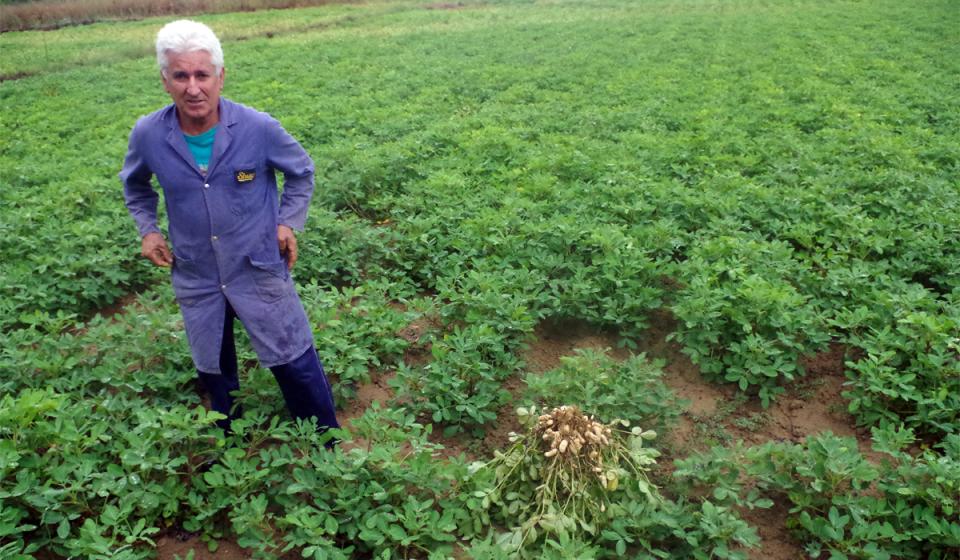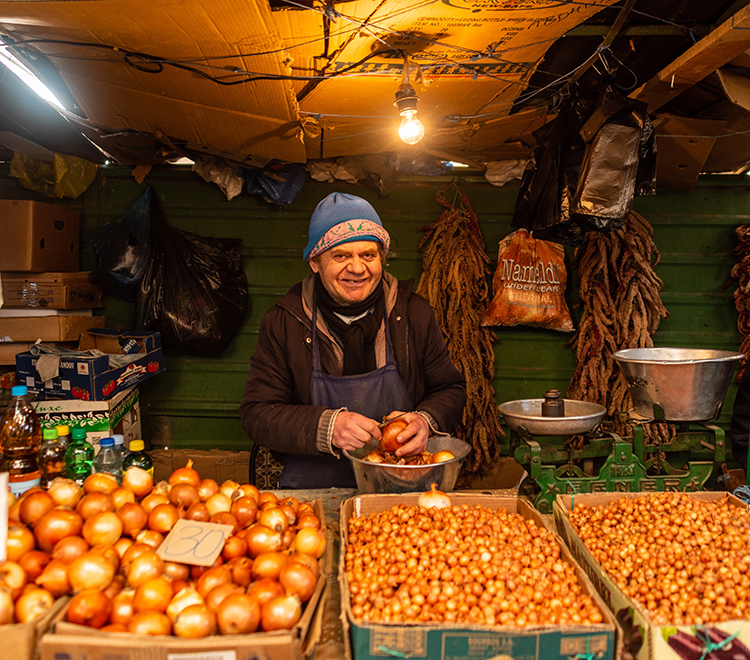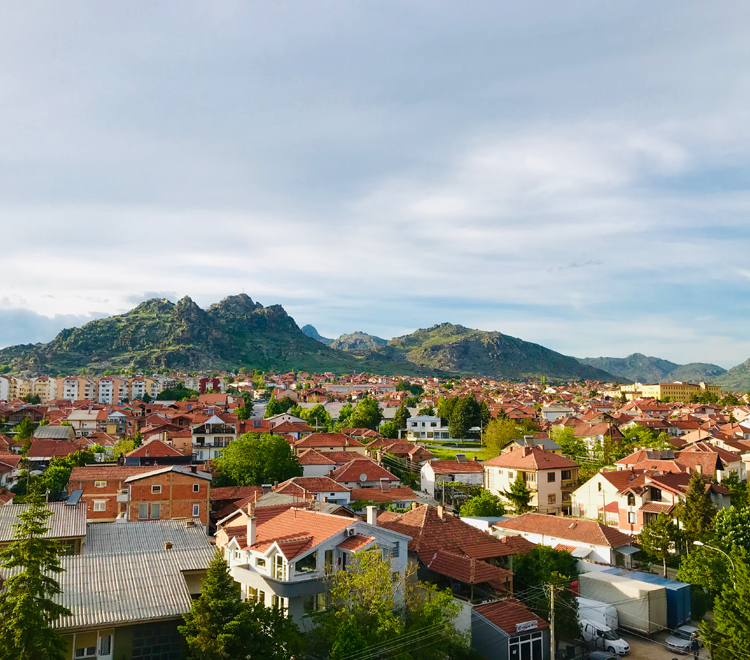The Prilep Living Lab, "Building Healthy Eating Habits Amongst Preschool Children," is a key initiative for sustainable food systems. It empowers kindergarten staff to foster healthy eating habits, aligning with FEAST's mission to harmonize people, the planet, and public-private partnerships.
This Living Lab, a collaboration between the Ministry of Labour and Social Affairs, UNICEF, Eduland, and the Association for Sustainable Prosperity (part of FEAST), develops nutritional pedagogy modules. Comprehensive resources, including theoretical and interactive materials, are designed for nationwide kindergarten use. The project revises national nutrition guidelines based on stakeholder research and creates policy recommendations.
The Living Lab emphasizes preserving traditional, healthy, and sustainable diets adapted to local resources and values. Addressing challenges like globalization and food commodification, it involves kindergarten staff, parents, and the community in planning and preparing sustainable school meals.
Activities include expert-led workshops on nutritional pedagogy by pedagogists, educators, and public health professionals. The lab pilots nationwide training and introduces tools like the “Magic Plate,” enhancing sustainable food education.
By tackling local challenges such as childhood obesity and food poverty, the Prilep Living Lab supports FEAST's mission and contributes to creating healthier, more sustainable futures for Macedonian children.
Video in Macedonian with English subtitles
Who we would like to support
As part of the Living Lab, our immediate targets are pre-school educators, kindergarten administrations, kitchen staff, and management. Additionally, we aim to involve local municipal and national-level institutions responsible for issues related to preschool nutrition. Parents and children are also key stakeholders, as they will benefit from the improved practices in kindergartens resulting from our Living Lab intervention. We work with public kindergartens, which are accessible to everyone, ensuring that children from different socio-economic backgrounds attend and benefit from the initiative.
Furthermore, the target group includes school children and their families, local producers, and school staff. The children involved are likely to be of different ages, genders, ethnicities, and socio-economic backgrounds, while the families are diverse and may face various challenges and opportunities, such as time and financial constraints. The producers are often small-scale, local, and informal. The school staff, including teachers, cooks, administrators, support staff, and management, may have different roles, responsibilities, and incentives.
Participants may experience different vulnerabilities and risks depending on their specific situation and context. Children may be at risk of unhealthy diets and chronic diseases. Families may face food insecurity, malnutrition, and social isolation. Producers may encounter market volatility, food safety issues, and social exclusion. School staff may deal with job insecurity, workload, and stress. The study aims to minimize these vulnerabilities and risks while maximizing the benefits and opportunities of the project.
What’s coming next
The next steps for this project will include:
- Conducting a needs assessment to determine the specific food-related challenges and vulnerabilities of the target communities, including factors such as food insecurity, malnutrition, and access to healthy and culturally appropriate foods.
- Engaging with local stakeholders, including the municipality, the kindergarten administration, farmers, schools, community organizations, and government agencies, to build partnerships and networks that can support the project's goals. Established partnership with the Ministry of Labour and Social Affairs, UNICEF, Eduland and the pilot kindergarten with special emphasis on the kindergarten “Our Future” in Prilep, for the kick-off of our Living Lab.
- Developing a detailed project plan that outlines the goals, objectives, activities, timeline, and budget for the project, as well as the roles and responsibilities of the project team and stakeholders.
- Designing and implementing interventions that are tailored to the specific food-related challenges of the target communities. Developed a series of workshops and training sessions on Sustainable Nutrition for Early Childhood Educators.
- Monitoring and evaluating the project's progress and impact, using both quantitative and qualitative methods, to determine the effectiveness of the interventions and identify areas for improvement. Implemented pre-intervention questionnaire, aiming to collect and analyze the perceptions and personal definitions regarding quality and sustainable food; In addition, to examine the existing nutritional practices in the kindergarten as well as to explore the opinion of the respondents when it comes to the food served in the institution for pre-school education.
Local Food Challenges
With inflation rates soaring close to 20% in 2022, food insecurity has become a pressing issue. The rising cost of food and energy has put vulnerable communities in a precarious position, and any long-term solutions may be viewed as redundant or detached from their immediate needs. In addition to economic challenges, there are political and bureaucratic hurdles in dealing with local and national governments that may hinder efforts to address food insecurity. To address these food challenges, short-term direct provision of healthy food to communities may be necessary. It is also crucial to engage with local stakeholders, including farmers, schools, and consumers, to understand their needs and work collaboratively to find sustainable solutions. One of the significant food challenges contributing to unsustainable food systems in kindergartens is the tendency to not serve healthy options. This issue arises from various factors, including limited budgets, lack of awareness about nutrition, and the convenience of processed and pre-packaged foods. Often, kindergartens opt for cheaper, mass-produced food items that are high in sugars, fats, and preservatives, neglecting the nutritional needs of growing children.
- READ FULL TEXT
The primary challenges in the Macedonian context include:
- Obesity: Rising obesity rates among preschool children due to unhealthy eating habits and insufficient physical activity. The prevalence of high-calorie, low-nutrient foods exacerbate this issue.
- Dependency on Imported Food: There is a significant reliance on imported foods, which often leads to a lack of fresh, locally sourced produce in children's diets. This dependency impacts both the nutritional quality of meals and the local economy.
- Food Security: Issues with food security and availability, particularly affecting low-income families and rural areas, limit access to diverse and nutritious food options.
- Nutritional Education: There is a gap in nutritional education and awareness among educators and parents, contributing to poor dietary choices and practices.
- Childhood Obesity: There are rising rates of childhood obesity due to poor dietary habits and a lack of physical activity among children. The availability of high-calorie, low-nutrient foods in kindergartens contributes to this issue.
These challenges highlight the need for initiatives that promote healthy eating habits, support local food systems, and enhance nutritional education.
This reliance on unhealthy food options undermines the development of healthy eating habits from an early age and contributes to long-term health issues such as obesity, diabetes, and malnutrition. Additionally, it perpetuates a cycle of unsustainable food practices by prioritizing convenience and cost over nutritional value and sustainability. Processed foods typically have a larger environmental footprint due to the resources required for production, packaging, and transportation. Communication and education efforts can help combat negative perceptions and create a sense of ownership and pride in the project. By working together and taking a holistic approach, it may be possible to mitigate the challenges and create a more resilient and sustainable food system.
Living Lab Actions
The Living Lab aims to:
- One of the key deliverables of the Prilep Living Lab is the "Magic Plate" resource. This resource provides theoretical and practical insights on nutritional pedagogy, designed to help preschool staff understand and teach healthy and sustainable eating habits. The "Magic Plate" includes comprehensive modules on various aspects of nutrition, making it a valuable tool for educators.
- In addition to the "Magic Plate," the Living Lab delivers training seminars to all preschool staff in the public kindergartens in the municipality of Prilep. These seminars are interactive, ensuring that staff members are introduced to the importance of healthy and sustainable food. They learn how to integrate these insights into their daily work with children and make informed decisions about the food provided in kindergarten menus.
- The Living Lab also conducts pre-intervention and post-intervention studies to measure the impact of the training and resources. These studies help assess changes in nutritional knowledge and practices among kindergarten staff and any modifications to the menus following the Living Lab interventions. This comprehensive approach ensures that the initiatives lead to tangible improvements in the food choices and eating habits of preschool children in Prilep.
Get to know the region
Prilep is a city located in the southwest region of North Macedonia. It is the fifth largest city in the country and has a population of approximately 66,000 people. Prilep is situated in the Pelagonia valley and is surrounded by the Baba and Kajmakčalan mountain ranges. Prilep is a city with a rich history, culture, and natural beauty. It is known for its tobacco industry, marble quarries, and vibrant cultural scene. The city has several attractions for tourists, such as archaeological sites, museums, and natural landmarks. Prilep is also a city with a growing economy and a vibrant sports scene.
Prilep is also known for its rich agricultural landscape. The region surrounding the city is blessed with fertile soil, plenty of sunshine, and moderate rainfall, making it ideal for agriculture. The area has a long history of agriculture, dating back to the Roman era, and today it remains an important center for agriculture in North Macedonia.
One of the main agricultural products in Prilep is fruits, with apples being the most popular crop. The region produces a large quantity of apples each year, which are used for both domestic consumption and export. Other fruits that are grown in the region include cherries, plums, and peaches.
- READ FULL TEXT
In addition to fruits, the region is also known for its production of vegetables. The fertile soil in the region is ideal for growing a variety of vegetables, including tomatoes, peppers, cucumbers, and beans. These vegetables are an important part of the local diet, as well as being sold in local markets and exported to neighboring countries.
Livestock farming is also an important part of agriculture in the region. Cattle, sheep, and goats are raised for their meat, milk, and wool, while chickens are raised for their eggs. Many farmers in the region also keep bees for honey production.
Another important aspect of agriculture in the Prilep region is the production of wine. The region has a long tradition of winemaking, with several vineyards and wineries producing high-quality wines. The most popular grape varieties grown in the region include Vranec, Merlot, Cabernet Sauvignon, and Chardonnay.
Despite the region's rich agricultural resources, there are several challenges that farmers in the area face. One of the biggest challenges is access to credit and financing, which can make it difficult for farmers to invest in their farms and increase production. Another challenge is the lack of modern equipment and technology, which can make farming more difficult and less efficient.
To address these challenges, the government of North Macedonia has implemented several programs to support agriculture in the region. These programs provide funding and technical assistance to farmers, as well as promoting the export of agricultural products to other countries. In addition, several NGOs and private organizations are also working to support agriculture in the region, by providing training, equipment, and financing to farmers.
Frequently asked questions
- When was the living lab established, and how has it evolved over time?
The preparations for the kick-off of our Living Lab began at the end of 2023, when ARETE's team partnered with the Association and Consulting of Educators and Learning Communities Eduland, UNICEF, and the Ministry for Labor and Social Policy. The primary objective of this partnership was to identify the needs in the national food systems where a FEAST intervention can be valuable. The collaboration led to the creation of a Healthy Eating Guide for Preschool Staff, titled "The Magic Plate." This manual, dedicated to the nutrition of preschool children, marks another step forward in promoting proper nutrition in early childhood. Its aim is to raise awareness, improve access to information on children's nutritional habits and proper nutrition, and highlight potential disorders resulting from nutritional imbalances. As part of national policy, professionals in nutrition, public health, and education contributed to the manual's development, ensuring comprehensive materials to introduce children to healthy eating.
The integrated approach combines healthy eating education, organic gardening, and parental involvement, allowing children to enjoy healthy food and understand its value from a young age. The manual was piloted throughout May in the following kindergartens: “25 May” Municipality of Gazi Baba, Skopje, kindergarten “Goce Delchev” Municipality of Ilinden-Skopje, kindergarten “Nasha Idnina” Municipality of Prilep, and kindergarten “8 April” Municipality of Shuto Orizari. Over 300 kindergarten staff members, including carers, teachers, kitchen staff, and administrators, participated in the pilot workshops focused on promoting healthy and sustainable nutrition for preschool children.
Prior to the intervention, kindergarten staff in the Municipality of Prilep participated in our pre-intervention questionnaire. This aimed to collect and analyse their perceptions and definitions of quality and sustainable food, examine existing nutritional practices in the kindergarten, and explore their opinions on the food served in the preschool institution.
- Who are the key stakeholders involved in the living lab?
The stakeholders in the Living Lab project include a diverse range of participants who play crucial roles in promoting healthy and sustainable nutrition for preschool children. These stakeholders include kindergarten staff and administration, municipalities, parents of the children attending kindergartens, Professionals in Nutrition, Public Health, and Education, representatives and educators within the Association and Consulting of Educators and Learning Communities Eduland, UNICEF, the Ministry for Labor and Social Policy as well as other NGOs Focused on Food Security and Sustainability. In addition, Government Agencies Responsible for Procurement and Local Supermarkets. By involving these stakeholders, the project aims to create a collaborative approach to addressing food challenges and finding sustainable solutions that benefit everyone involved.
- What activities are conducted in the living lab, such as workshops, seminars, conferences, or hackathons?
The Living Lab activities included the following events:
May 13, 2024 & May 31, 2025: Workshop 1 at kindergarten “25 May” in the Municipality of Gazi Baba, Skopje.
May 17, 2024: Workshop 2 at Kindergarten “Goce Delchev” in the Municipality of Ilinden-Skopje.
May 28-29, 2024: Workshop 3 at Kindergarten “Nasha Idnina” in the Municipality of Prilep. Nearly 200 kindergarten staff members, including carers, teachers, kitchen staff, and administration, participated in this event focused on promoting healthy and sustainable nutrition for preschool children.
May 30, 2024: Workshop 4 at kindergarten “8 April” in the Municipality of Shuto Orizari, Skopje.
These events were designed to equip kindergarten staff with the knowledge and skills necessary to foster healthy eating habits among children, aligning with the broader goals of the FEAST project. This initiative aims to build sustainable food systems and address food security and nutrition challenges in Europe, promoting synergies between people, the planet, and both public and private sectors.
- What research has been conducted in the living lab, including studies on user behavior, user experience design, and product design?
Our Living Lab research, approved by the University of Heidelberg's ethics committee, involves two comprehensive studies. The first study conducts interviews with national policymakers and kindergarten management to assess their experiences with the national rulebook for nutrition in preschool settings. The second is a pre- and post-intervention study tracking changes in attitudes, knowledge, and nutritional practices among preschool staff, following the introduction of the "Magic Plate" modules. Interviews were conducted prior to the May 2024 Living Labs and will continue in autumn 2024, with findings to be analyzed and presented subsequently. Both studies aim to produce policy and academic publications.
- What initiatives has the living lab undertaken, such as industry collaborations, funding programs, or outreach efforts?
The manual: Healthy Eating Guide for Preschool Staff, entitled "The Magic Plate." Available in Macedonian, English and Albanian language.
- What lessons have been learned from the living lab, including successful strategies, challenges faced, and areas for future improvement?
Before starting any intervention, it is essential to engage with all stakeholders, map out relevant contacts, and understand the current needs to identify where a meaningful intervention can be made. Including local actors, especially civil society associations immersed in the specific context, is crucial. For us, partnering with the NGO Eduland, which consists of preschool educators, was vital. They understand daily kindergarten operations, have direct experience, and are linked to international organizations like UNICEF. Additionally, managing relationships between different stakeholders requires extra time, effort, and often unplanned costs.
ARETE Sustainable Prosperity
Adela Gjorgjioska
Jane Sandanski, 37, ¾, 1000 Skopje
0038977507500
adela@aretenet.org
ARETE association for sustainable prosperity
Ana Tomičić
Cernička 8, 10000 Zagreb, Croatia
+385996470139
ana@aretenet.org
Testimonials from our community
Ensuring the well-being of our children remains our greatest national, social, and personal priority. Providing healthy and safe food is crucial for their growth and development, particularly in their formative early years.
The health of our children is our responsibility and concern. As a local self-government, we prioritize ensuring that children are healthy at home, in kindergartens, and in schools. We gladly accepted the idea of the Association for Sustainable Prosperity "ARETE" to implement the "Prilep Living Lab" project as partners. This project is part of the FEAST initiative (food systems that support the transition to healthy and sustainable nutrition), through which our children, especially those of preschool age, will have the opportunity to learn about healthy eating habits.
Healthy nutrition for children is one of the most important conditions for a healthy, happy, and quality childhood. We believe in it! Although today we live in a time of abundance when it comes to food, it is more difficult than ever to organize and provide a healthy diet for children. However, through this educational project, we will strive to help our children learn to eat healthily. Food means health, good growth, and proper development for children.
By fostering a preschool environment centered on healthy eating, we can promote a culture of wellness that influences the wider community.
Pepper to the People
Video credits: Amar Darwish, Tibor Đurđev, Ana Tomičić, Klara Tončić
Workshop Leader: Meghanne Barker (UCL)
Platform: KinoKlub Zagreb
Language: Croatian
Subtitles: English
Target Group: General public interested in cultural heritage and sustainability




